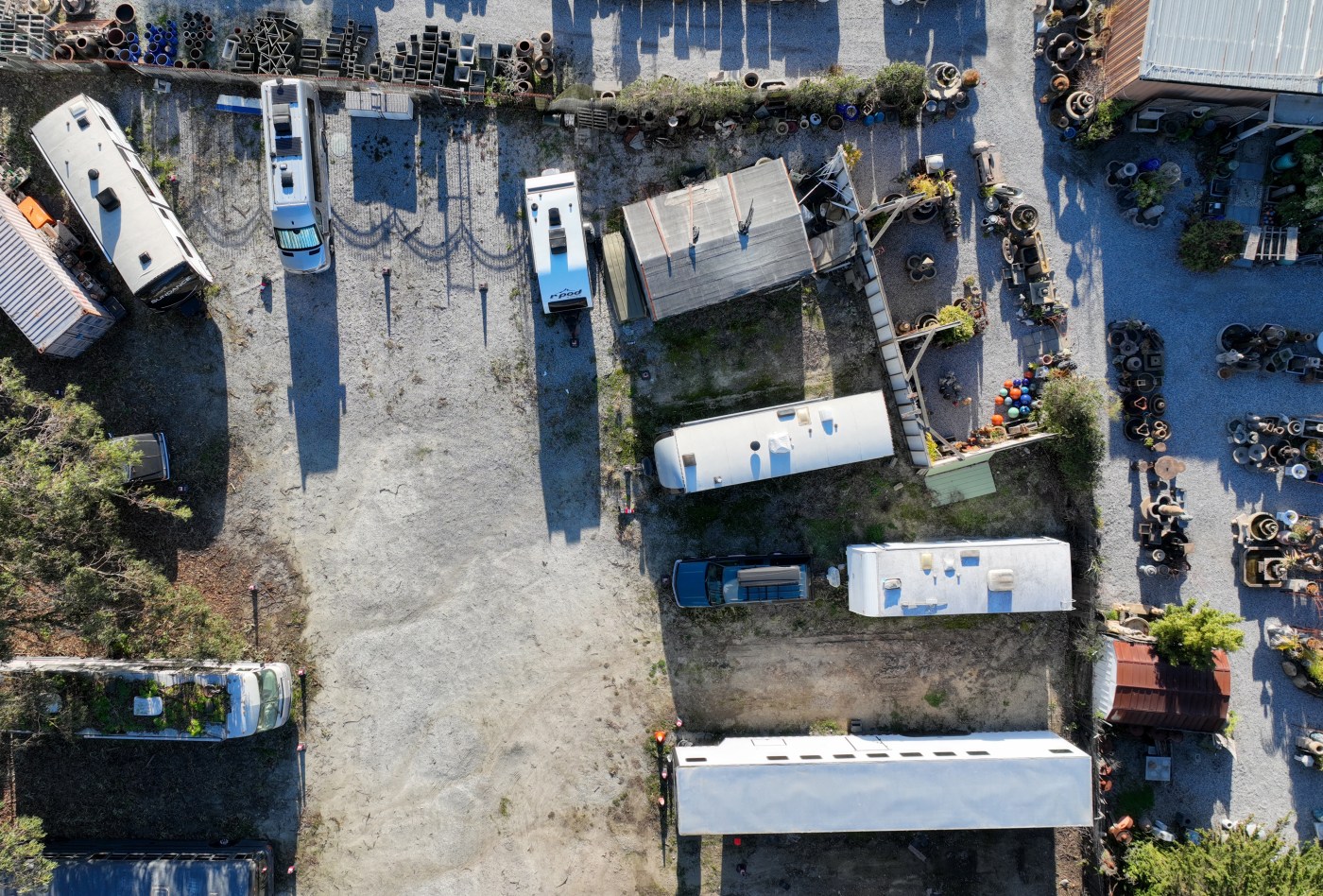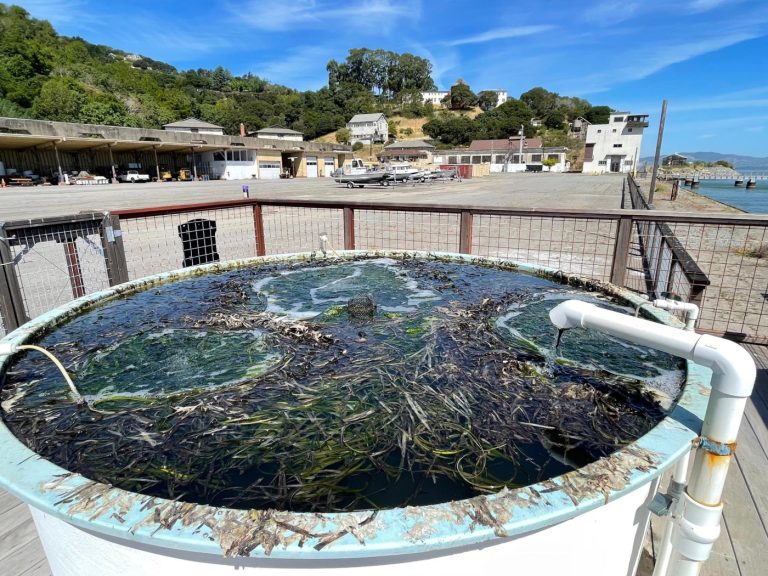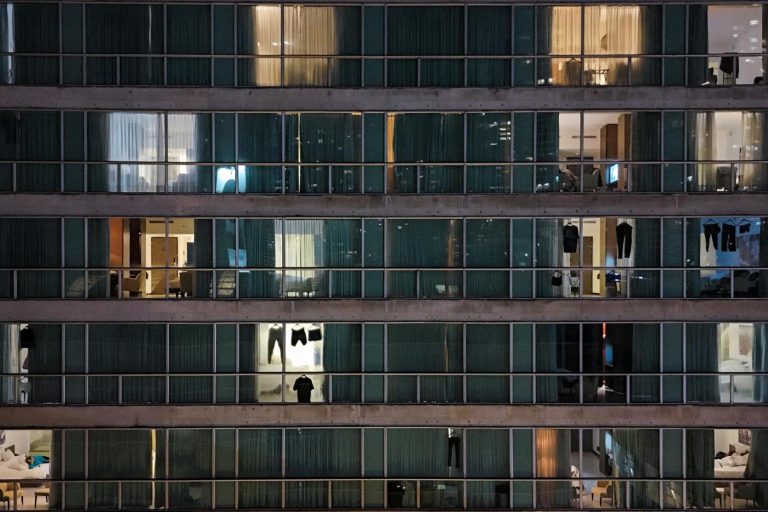HALF MOON BAY — After a mass shooting last year killed seven farmworkers and exposed derelict living conditions for farmworkers, city officials and residents here agree that there’s an urgent need for better housing for some of San Mateo County’s poorest residents.
But plans to build exactly that in downtown Half Moon Bay are being met with a common refrain: please, just not here.
Citing concerns about design, height and limited parking capacity, Half Moon Bay’s planning commission is slow-walking plans for a five-story, 40-unit affordable housing project for senior farmworkers at 555 Kelly Ave. At a meeting on Tuesday, commissioners voted — for the second time in two weeks— to push back their decision to approve the project, creating potential delays that the developer said could keep them from applying for the funding needed to start construction.
“You’re going to see this building, and it’s not a small building,” said Planning Commissioner Rick Hernandez. “How does that inform the character of Half Moon Bay?”
Commissioners said that while they support the idea of more farmworker housing, they needed more time to consider whether the project fit within the city’s coastal land use plan, which regulates development across California’s coastline.
“The primary objective … is to protect coastal resources — full stop. A second-tier consideration is to provide affordable housing,” said Hernandez, who works as an executive at a logistics company. “The downtown character, the access to the beach and coastal access for the purposes of recreation as a visitor-serving town — these are resources we have to protect.”
Nonprofit developer Mercy Housing is applying to build a 40-unit, 100% affordable housing development at 555 Kelly Avenue to house Half Moon Bay farmworkers, but it’s facing anti-development sentiment from neighbors in the coastal city.
The project’s supporters — who out-numbered its detractors Tuesday — were quick to point out the contradiction between the initial enthusiasm for improving farmworker living conditions and the current pushback.
“We see the injustice, we are appalled by the living conditions, and we’re all kumbaya,” Half Moon Bay resident RJ Jennings said before the commissioners on Tuesday. “But when it comes to making the change, it’s people in your position that decide that something like parking can stop growth.”
“You have been presented with the best opportunity you have to make a change for farmworkers,” said Rita Mancera, executive director of Puente de la Costa Sur, a nonprofit supporting farmworkers in nearby Pescadero. “They deserve better housing … don’t let this opportunity go.”
The January 2023 shooting exposed the uninhabitable conditions farmworkers lived in, bringing a sense of urgency to an issue that activists have long tried to call attention to. The housing at the two farms where the shooting took place — Concord Farms and California Terra Garden — have been condemned, and workers relocated to temporary housing. One of the workers who lived on one of the farms, 67-year-old Chunli Zhao, is accused of killing his fellow farmworkers and is now facing seven counts of murder and one count of attempted murder.
Plans for the senior housing, however, predate the mass shooting. In 2022, nonprofit developer Mercy Housing and ALAS, a nonprofit that supports Latinos in Half Moon Bay, presented the initial plans for 40 studio apartments and ground-floor parking within a four-story building. But after more meetings with city leaders and farmworker community groups, Mercy opted to include a mix of studios and one and two-bedroom apartments, bringing the project’s height to five stories.
Related Articles
‘I’m still in pain’: Half Moon Bay shooting survivor files lawsuit
Half Moon Bay shooting victim, families sue mushroom farm, alleging wrongful death
Accused Half Moon Bay gunman pleads not guilty to murder charges in 2023 shooting spree
Commissioners asked whether the developer could move parking underground, rather than taking up part of the ground floor, but Mercy responded that it would be too costly. The developer also said it could not move some of the office space on the first floor, as some of the public funding it is receiving to build the project requires that property management and certain support services offered to residents be provided on-site.
Mercy currently has the majority of funding lined up for the $43 million project — which includes sources from San Mateo County and a land donation from the city of Half Moon Bay. They are also relying on federal low-income tax credits to complete the project, but must get the city’s sign-off to be eligible for those funds. The project would be delayed a year if the July 2 application deadline is missed.
Carolina Carbajal, an organizer with ALAS, said that farmworkers can’t wait any longer.
“Latinos do the work that other people don’t want to do … and we do it with pleasure,” she said through an interpreter. “It’s time that we have housing in Half Moon Bay, for the people who really have worked for it.”












